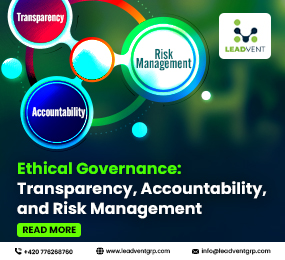ESG in Africa: Building a Sustainable and Inclusive Future
Across Africa, conversations around development are shifting from quick wins to long-term sustainability, from short-term profit to people and planet. At the heart of this transformation is ESG Environmental, Social, and Governance principles that are now shaping how governments, businesses, and investors operate across the continent.
Africa is not just responding to global ESG trends it’s creating its own story, rooted in local realities, values, and challenges. With abundant natural resources, rich cultural diversity, and a young, rapidly growing population, the continent is uniquely positioned to lead with purpose-driven growth. But doing so means facing real questions: How can Africa industrialize without repeating the mistakes of the past? How do you grow economies while protecting communities and ecosystems?
These are the questions ESG aims to answer.
Environmental Responsibility: More Than Climate Goals
Africa faces some of the world’s harshest climate impacts from droughts in the Sahel to rising sea levels along the coast. Yet the continent contributes only a fraction of global emissions. This contradiction makes environmental stewardship both urgent and deeply personal.
Countries like Kenya, Namibia, and Morocco are investing heavily in renewable energy not just to reduce emissions, but to improve access to power in off-grid communities. Sustainable agriculture is being embraced in regions where soil health and water scarcity threaten food security. In forest-rich nations like Gabon and the DRC, nature-based solutions like carbon credits are gaining traction.
Environmental ESG in Africa isn’t about theory it’s about survival and sovereignty.
Social Impact: Growth That Includes Everyone
The “S” in ESG stands for people and in Africa, this means addressing persistent inequalities. Whether it's access to healthcare, education, or financial services, socially responsible policies are becoming key to inclusive development.
Startups are helping women farmers access microcredit. Telecoms are building digital bridges to reach underserved communities. Infrastructure projects are now measured not only by their output, but by how many lives they improve.
For companies operating in Africa, strong social practices are no longer optional they’re part of building license to operate and long-term stability.
Governance: The Foundation of Trust
Corruption, weak institutions, and regulatory gaps have long discouraged investment in parts of Africa. But that’s changing. Good governance is becoming central to ESG strategies ensuring transparency, accountability, and ethical leadership.
Countries are updating procurement laws, enforcing corporate disclosure rules, and encouraging public-private partnerships that reward responsible business behavior. Investors are increasingly aligning their portfolios with ESG benchmarks to avoid reputational and financial risks.
This shift isn’t just top-down it’s also grassroots, with civil society and local leaders demanding a voice and holding institutions to account.
Takeaway
ESG in Africa is not about ticking boxes or meeting foreign expectations. It’s about choosing a development path that balances growth with dignity, investment with responsibility, and opportunity with resilience. In this evolving landscape, ESG is not a trend it’s a framework for Africa’s future.
Learn more on our website https://www.leadventgrp.com/events/esg-and-climate-africa-summit/details
For more information and group participation, contact us: [email protected]
Leadvent Group - Industry Leading Events for Business Leaders!
www.leadventgrp.com | [email protected]
















